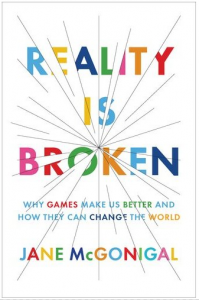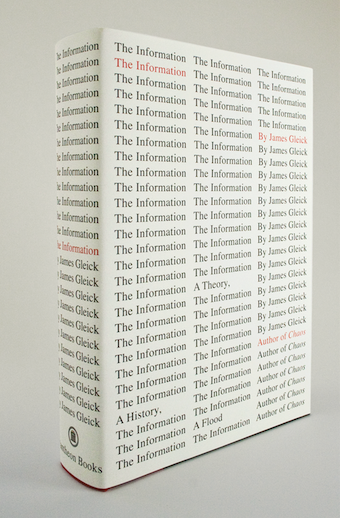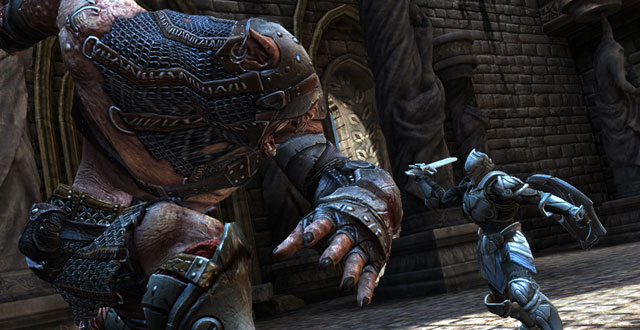From Slashdot this readable summary of the compromises we make in A Day in the Life of Privacy. The essay walks through the privacy concerns around daily life from renting a video (and being asked for your Zip code) to you smartphone.
Category: Philosophy of Computing
AI vs. AI. Two chatbots talking to each other
Calen sent me this link of two chatbots talking with each other, AI vs. AI. Two chatbots talking to each other. I can’t help thinking the dialogue was scripted, but that doesn’t change the pleasure of imagining a chatbot getting irritated with another.
Internet use and transactive memory – Contemplative Computing
From Humanist I was led to a good summary blog entry on Internet use and transactive memory. Transactive memory is a group or stored memory that we depend on instead of remember the information itself. We do this all the time (even before computers) when, for example, we depend on a cookbook for a recipe we have used before, but can’t be bothered to memorize. Given books like Carr’s The Shallows, there is debate about whether Google and the internet as transactive memory is making us stupider.
The real question is not whether offloading memory to other people or to things makes us stupid; humans do that all the time, and it shouldn’t be surprising that we do it with computers. The issues, I think, are 1) whether we do this consciously, as a matter of choice rather than as an accident; and 2) what we seek to gain by doing so.
This entry was sparked by recent news of research results on this subject by Dr. Sparrow and others (see YouTube interview). You can see Carr’s blog entry at Rough Type: Nicholas Carr’s Blog: Minds like sieves. Carr seems to think this reinforces his view that we are shifting to depending too much on technological transactive memory. Sparrow is more careful about drawing conclusions. We may have always depended on transactive memory, but are focusing now on one type – the internet. In Plato’s Phaedrus Socrates focused on writing as the technology tempting us to forget.
Of course, forgetting costs so we may not have to worry if we don’t want to pay.
The Information: A History, a Theory, a Flood | James Gleick
I just finished Jame Gleick’s The Information: A History, a Theory, a Flood. One of the best books I’ve read in some time. Despite its length (527 pages including index, bibliography and notes) it doesn’t exhaust the subject pedantically. Many of the chapters hint and more things to think about. It also takes an unexpected trajectory. I expected it to go from Babbage and the telegraph to computers and then Engelbart and information extensions. Instead he works his way through physics and math. He looks at ideas about how to measure information and the materiality of information explaining the startling conclusion that “Forgetting takes work.” (p. 362)
The second to last chapter “News News Every Day” is as good an exploration of the issue of information overload as I have read. He suggests that the perception of “overload” comes from the metaphoric application of our understanding of electrical circuits as in “overloading the circuits.” If one believes the nervous system is like an electrical network then it is possible to overload the network with too much input. That, after all, is what Carr argues in The Shallows (though he uses cognitive science.) None-the-less electrical and now computing metaphors for the mind and nervous system are haunting the discussion about information. Is one overloaded with information when you turn a corner in the woods and see a new vista of lakes and mountains? What Gleick does is connect information overload with the insight that it is forgetting that is expensive. We feel overloaded because it takes work not to find information, but to filter out information. To have peaceful moment thinking you need to forget and that is expensive.
Gleick ends, as he should, with meaning. Information theory ignores meaning, but information is not informative unless it means something to someone at some time. Where does the meaning come from? Is it interconnectedness? Does the hypertext network (and tools that measure connectedness like Google) give meaning to the data? No, for Gleick it is human choice.
As ever, it is the choice that informs us (in the original sense of that word). Selecting the genuine takes work; then forgetting takes even more work. (p. 425)
More on the Shallows
In an earlier blog post I mentioned distraction and Nicholas Carr’s book, The Shallows. Here is a more complete reaction now that I’ve finished the book.
Carr argues that the web is an interruption technology that is changing the way we think. The multiple media, the hypertext links, and the constant flow of information distract us. He surveys research on reading and how the brain handles multimedia. He argues that the web is changing our brains. Sustained “deep” reading is what we aren’t doing.
His argument looks for a balance of rapid surfing (flitting) and slow contemplation, reading, and thinking. His argument is partly cognitive – around the way our memory formation works. He argues that our memory is organic and not at all like a computer. To form the long term memories that shape our mind we need to go slow, to reinforce and to think about things. The hyperdistraction of the web overloads short term memory and inhibits the development of long term memories. These long term memories are not information stored (that is the computer analogy) but our mind. The long term shaping shapes processing not just storage. A good example (which he doesn’t use) is language. As you learn a language you learn to think in that language, not just to store vocabulary and grammatical rules.
Carr also attacks the technoliterati, especially Page and Brin of Google. He attacks them for arguing that the web (and Google) are offloading memory to free up space in our brains. This, he argues, is just wrong from a cognitive perspective. We don’t have a limit to storage because memory is not storage. To offload it is not to think it and not to let it shape you.
I’m not sure he is right that books are that much better, though he quotes some studies (about how hypertext, the foundation of the web, doesn’t help much.) It is probably quiet reading that is more conducive to thinking than books. I also wonder if some computer games are an example of sustained thinking toys.
There is in the last chapter “A Think Like Me” an interesting philosophical discussion about how we shape and are shaped by technologies. He quotes McLuhan to the effect that extensions numb us. If you extend your arm with a tool, then you don’t feel with your hands. If you extend your mind with a tool like the web then you numb your mind.
At times Carr is realistic that we want a balance. We like to be numbed from some things like the cold. We use houses even if they isolate us. The trick is probably to be able to choose the level of engagement and to choose how you want to think. I don’t want to think about the outside weather so I have a thermostat and automatic heating. I do want to think about other things.
Kill Screen – Infinity Blade Review
Ivan sent me a link to a very smart review of the iPad game Infinity Blade. See Kill Screen – Infinity Blade Review. The review starts with:
Infinity Blade is a game about interation, about retreading old ground, about the small changes that surface across endless repetitions.
In the game, every time you die you come back as your son, but with slightly more experience and better powers. The review has a “Begin Bloodline X” at the bottom. Clicking on it replaces some of the words in the review with another review. Small changes are animated and the process then repeats. The review is a meditation on the game as life where you “live the same life a little bit better, a little bit smarter, a little bit longer than the time before.”
Very smart. Better than the game.
David Eagleman and Mysteries of the Brain : The New Yorker
The other day I got into a fascinating discussion about cognitive science and whether the humanities might be replaced by neuroscience. (See my previous blog entry, Harpham: Science and the Theft of Humanity.) For example, the study of beauty (aesthetics) might be replaced by the study of how people think about beauty and what parts of their brain light up when they experience beauty. This conversation was with a neuropsychologist who was patient with my fumbling critique. Then Bethany sent us a link to a story in the New Yorker where the featured scientist says,
“There’s always an impulse toward phrenology in neuroscience—toward saying, ‘Here is the spot where it’s happening,’ ” Eagleman told me. “But the interesting thing about time is that there is no spot. It’s a distributed property. It’s metasensory; it rides on top of all the others.”
via David Eagleman and Mysteries of the Brain : The New Yorker.
Reality is Broken
 Reality is Broken is the recent book about gamification by Jane McGonigal (New York, The Penguin Press, 2011) that has been getting a lot of attention. My copy finally came in the mail so now I guess I have to read it. I sound reluctant because everything I’ve read about the book disposes me to dislike it. The vapid “computers are going to save the world” (once more) hype by and for the author is enough to choke on. The idea that gamifying can solve all sorts of problems reminds me of when I thought I could get students to learn by making games out of completing assignments (yes, I too used scratch-and-sniff stickers to gamify learning.) I say all this to acknowledge that as I write one or more blog entries on this book as I read it, I am not reading the work with a fair mind, so readers of my comments beware.
Reality is Broken is the recent book about gamification by Jane McGonigal (New York, The Penguin Press, 2011) that has been getting a lot of attention. My copy finally came in the mail so now I guess I have to read it. I sound reluctant because everything I’ve read about the book disposes me to dislike it. The vapid “computers are going to save the world” (once more) hype by and for the author is enough to choke on. The idea that gamifying can solve all sorts of problems reminds me of when I thought I could get students to learn by making games out of completing assignments (yes, I too used scratch-and-sniff stickers to gamify learning.) I say all this to acknowledge that as I write one or more blog entries on this book as I read it, I am not reading the work with a fair mind, so readers of my comments beware.
The Management Myth
Wandering through The Atlantic I came across an article I loved back when I first read it. The Management Myth by Matthew Stewart (June 2006) has a subtitle that says it all, “Most of Management Theory is Inane …” Stewart compares philosophy to business degrees and comes to the conclusion that philosophy should take over.
The recognition that management theory is a sadly neglected subdiscipline of philosophy began with an experience of déjà vu. As I plowed through my shelfload of bad management books, I beheld a discipline that consists mainly of unverifiable propositions and cryptic anecdotes, is rarely if ever held accountable, and produces an inordinate number of catastrophically bad writers. It was all too familiar. There are, however, at least two crucial differences between philosophers and their wayward cousins. The first and most important is that philosophers are much better at knowing what they don’t know. The second is money. In a sense, management theory is what happens to philosophers when you pay them too much.
Beware Social Media’s Surprising Dark Side, Scholars Warn CEO’s
Jeffrey R. Young has an article in the Technology section of The Chronicle of Higher Education enjoining us to Beware Social Media’s Surprising Dark Side, Scholars Warn CEO’s (March 20, 2011). The article is about a South by Southwest Interactive conference that brought together researchers and industry.
One of the big trends is using crowdsourcing or micropayments to get work done for free or very little. Jonathan Zittrain, a Harvard law professor warned that this could be exploitative.
Mr. Zittrain began his argument against crowdsourcing with the story of the Mechanical Turk, a machine in the 18th century that was said to play chess as well as a human. But the contraption was a showy fraud; a man hidden inside moved the arms of a turban-wearing mannequin. Amazon, the online shopping giant, now offers a crowdsourcing service it calls Mechanical Turk, which lets anyone, for a fee, commission unseen hands to work on tasks like proofreading documents or identifying artists in musical recordings.
The similarity of crowdsourcing to a man shoved inside a box means the practice isn’t exactly worker-friendly, the professor argued. “In fact, it’s an actual digital sweatshop,” he said of the many sites that use the approach.
Fees paid for crowdsourced tasks are usually so meager that they could not possibly earn participants a living wage, Mr. Zittrain argued. He is familiar with one group drawn to the services: poor graduate students seeking spending money.
I wonder if anyone has proposed a code of ethics for crowdsourcing? Thanks to Megan for sending this to me.


